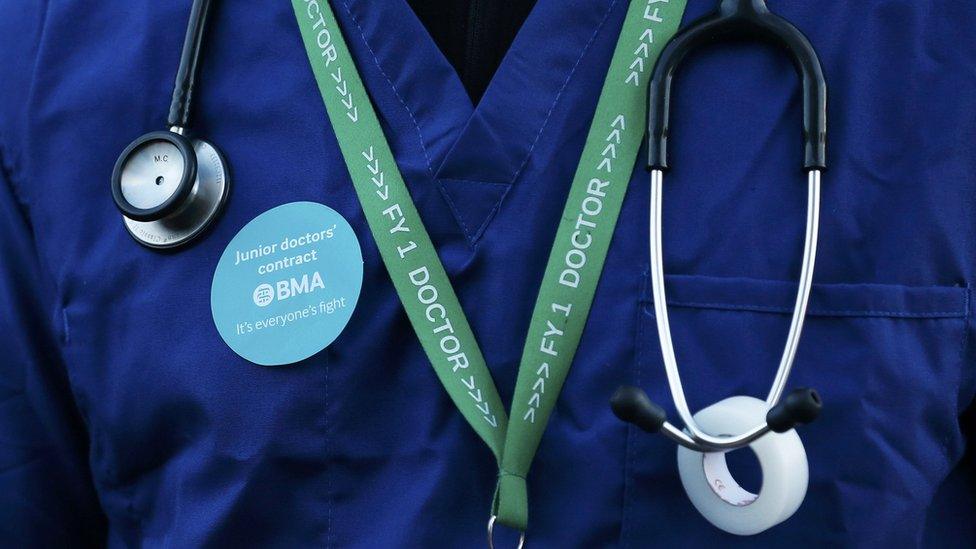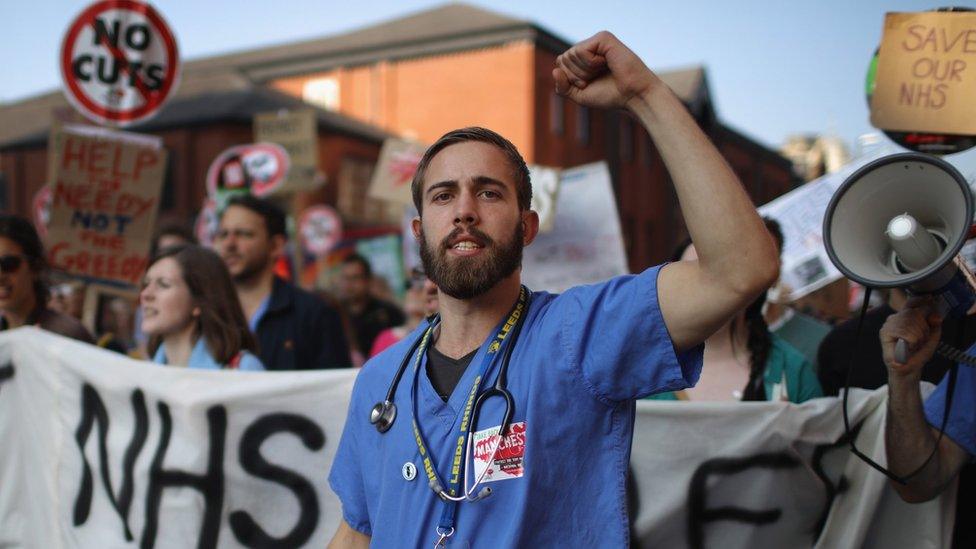A&E strike should be suspended, say medical leaders
- Published

Medical leaders say the planned all-out strike by junior doctors in England at the end of April over a contract dispute could be damaging to patients and should be suspended.
And they say ministers should hold off imposing the controversial contract.
The presidents of 22 different Medical Royal Colleges and Faculties say patient welfare must come first.
They are asking both sides to "step back from the brink" and re-enter negotiations.
"We believe that this is essential if the current impasse is to be broken and progress made in resolving this extremely damaging stand-off for the benefit of all NHS stakeholders, particularly our patients and trainees," says the Academy of Medical Royal Colleges, external.
Meanwhile, more than 1,000 medics have signed a letter asking the Prime Minister to intervene, external and stop the new junior doctor contract from going ahead.
Among the signatories is GP Clare Gerada, former chair of the Royal College of General Practitioners.
The letter warns that if the dispute continues "many more doctors will follow the current trend and leave the country to work abroad as they feel disillusioned and unhappy with how they are being treated by your government."
Strikes
There are two further periods of planned strikes.
The first will begin at 08:00 on 6 April for 48 hours when junior doctors will refuse to offer routine care but will provide emergency cover - similar to a Christmas Day service.
All-out stoppages are then planned to take place from 08:00 to 17:00 on 26 and 27 April.
This would be the first time doctors have removed cover from areas such as A&E and intensive care.
Consultants will have to be drafted in from other hospital departments to staff emergency care, potentially causing huge disruption to routine services.
Anyone who is unwell on the strike day should still seek medical help if they need it.
Junior doctors' leaders are objecting to plans to introduce a new working contract in England.
They say the changes will lead to unsafe shift patterns, harm morale and worsen recruitment and retention of staff.
The health secretary says the change will help deliver better care at weekends.
A Department of Health spokesperson said they had hoped to have negotiated an agreement by now, but since talks had broken down they "no choice" but to proceed with the contract.
Prof Derek Bell, President of the Royal College of Physicians of Edinburgh, said: "The junior contract dispute should not have escalated to the current position with the threat of imposition by the UK Government and a full strike planned by junior doctors, who are understandably aggrieved with the situation.
"I have asked the Prime Minister to intervene as a matter of urgency as the only solution that will benefit patients and the long term sustainability of the NHS and its workforce is a negotiated solution."
- Published6 April 2016
